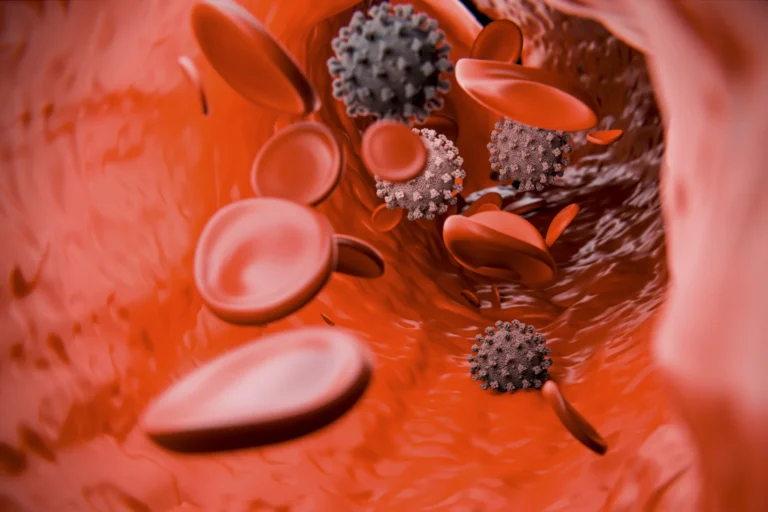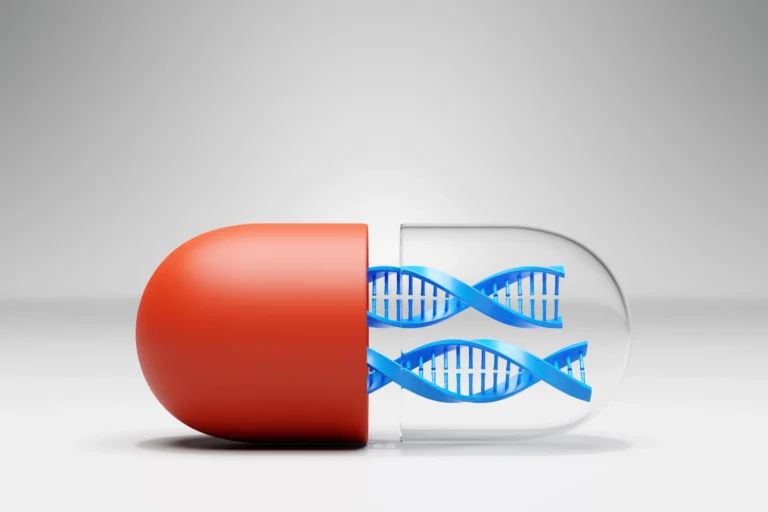The Importance of Non-Molecular Based Pharmacogenomics Testing
Over 2 million people in the United States experience adverse drug reactions annually, contributing to approximately 100,000 deaths. This fact highlights the pivotal function of non-molecular based pharmacogenomics testing within precision medicine. Such methodologies, distinct from traditional molecular analyses, enable a depth of scrutiny into an individual’s drug responsiveness. This personalized approach aids in the efficacious and customized provisioning of pharmaceutical interventions.
Pharmacogenomics explore the genetic underpinnings of medication reactions. While often involving DNA assessment, non-molecular based pharmacogenomics testing broadens the diagnostic scope by incorporating diverse biological indicators. The resulting predictive insights for drug reactions outperform traditional, exclusively genetic tests. Consequently, these alternative approaches emerge as indispensable instruments in enabling precision medicine‘s principles.

Key Takeaways
- Non-molecular based pharmacogenomics testing provides a more comprehensive assessment of drug response compared to traditional DNA-based methods.
- These non-DNA testing approaches offer improved cost-effectiveness and reduced logistical challenges.
- Non-molecular testing can capture a broader range of factors influencing an individual’s drug response, including epigenetic and phenotypic markers.
- Integration of non-molecular based pharmacogenomics testing into clinical practice can lead to more personalized and effective medication therapy.
- Ongoing research and collaboration are crucial for the continued advancement and adoption of non-molecular based pharmacogenomics testing.
Introduction to Pharmacogenomics
Pharmacogenomics examines the interplay between an individual’s genetic composition and their pharmacological response. This field delves into genetic variants shaping drug efficacy and safety. It thus underpins a personalized approach to medicine, enhancing treatment outcomes.
Definition of Pharmacogenomics
Pharmacogenomics delves into how an individual’s genetic blueprint influences their reaction to pharmaceuticals. It explores the role of genetic elements in drug metabolism and interactions with biological targets. The goal is to refine drug use, maximizing efficacy while reducing the likelihood of adverse effects.
Role in Precision Medicine
In the precision medicine paradigm, pharmacogenomics plays a pivotal role. It allows for tailored medication and prevention strategies, honing in on each patient’s unique genetic traits. This approach, by enhancing the accuracy of drug therapy decisions, fosters better treatment outcomes and diminishes healthcare expenses.
How Genes Influence Drug Response
An individual’s genetic composition exerts profound effects on their reaction to pharmaceuticals. Specifically, variations in genetic blueprints alter the way the body absorbs, metabolizes, and responds to drugs. This is primarily evident in the realm of drug metabolism, where genes encoding metabolizing enzymes undergo polymorphisms, influencing drug efficacy and safety.
Genetic Variations and Enzyme Function
Strongly intertwined with nucleotide makeup, the functionality of drug-metabolizing enzymes varies significantly. A quintessential illustration is the CYP2D6 gene, governing the cytochrome P450 2D6 enzyme. Its polymorphisms classify individuals into metabolic extremes regarding drugs like antidepressants, antipsychotics, and opioid analgesics.
Impact on Drug Metabolism
This variability in enzyme function carries weighty consequences for drug metabolism. The implications span across a drug’s action, safety profile, and the necessitated dosage for a therapeutic benefit. Those with reduced enzymatic function might face toxicity at standard doses, necessitating dose reduction, whereas individuals with a propensity for heightened enzyme activity could require increased doses for therapeutic efficacy.
Non-Molecular Based Pharmacogenomics Testing
Non-molecular based pharmacogenomics testing diverges from the exclusive genetic analysis. Instead, it encompasses the use of biological cues beyond genetic markers to foresee drug responses. By tapping into these non-molecular modalities, the shortcomings of traditional molecular-based tests are effectively circumvented, elevating their significance within the precision medicine domain.
Types of Non-Molecular Tests
The gamut of non-molecular based pharmacogenomics tests is expansive, including:
- Enzyme activity assays: These determine the activity levels of enzymes crucial for drug metabolism, particularly the cytochrome P450 family.
- Metabolite profiling: This category evaluates drug metabolite quantities within an individual, shedding light on their metabolic processing of medicines.
- Protein expression analysis: Focuses on appraising the quantities of proteins involved in drug conveyance and binding.
- Physiological biomarkers: Leveraging various physiological metrics—such as cardiovascular measures or internal body temperature—these biomarkers predict drug reactions.
Advantages over Molecular Testing
Comparatively, non-molecular based pharmacogenomics testing transcends the limitations of the conventional, DNA-focused strategies, presenting several key advantages:
| Advantage | Description |
|---|---|
| Comprehensive Assessment | These tests consider a wider array of elements that influence drug responses, ranging from epigenetic to environmental influences, not solely genetic variables. |
| Cost-Effectiveness | They tend to be more economically viable than genetic-centric methods, enhancing both provider and patient accessibility. |
| Reduced Logistical Challenges | The process of sample acquisition and analysis is streamlined, mitigating the logistical hurdles characteristic of molecular tests. |
| Real-Time Monitoring | Some tests offer instant or nearly-instant feedback on an individual’s response to drugs, permitting prompt therapeutic interventions. |
Integrating these benefits, non-molecular pharmacogenomics testing stands at the frontier of precision medicine, fostering superior health outcomes for patients.
Applications in Clinical Practice
Non-molecular based pharmacogenomics testing has transcended conventional practice in understanding patient-specific drug responses. This paradigm shift offers a profound insight into the optimization of therapies across a spectrum of illnesses. Applications extend notably into managing cardiovascular diseases, psychiatric disorders, and refining cancer treatment modalities.
Cardiovascular Diseases
Within cardiovascular care, the implementation of non-molecular-based pharmacogenomics testing is redefining therapeutic approaches. It delves into critical aspects such as platelet function and enzyme activity. Thus, aiding clinicians in personalizing medication regimens related to antiplatelet drugs, anticoagulants, and statins. This precise tailoring enhances patient outcomes while mitigating the risk of adverse events significantly.
Psychiatric Disorders
Psychiatric conditions, with their intricate nature and wide inter-individual drug responses, challenge traditional treatment methods. Non-molecular pharmacogenomics tests offer a breakthrough in understanding metabolic variations for psychiatric drugs. This insight equips providers to blueprint treatment strategies personalized to individual metabolic capacities, thereby safeguarding against adverse drug reactions.
Cancer Treatment
Oncology has significantly benefitted from the precision of non-molecular pharmacogenomics testing, enhancing cancer treatment optimization. These tests evaluate crucial elements like enzyme function and drug transport to prognosticate individual responses to chemotherapy. The resultant tailored treatment regimens are both efficacious and lessen the chances of adverse effects, marking a substantial advancement in care protocols.
Overcoming Challenges
Non-molecular based pharmacogenomics testing presents distinctive advantages. However, integration into clinical routines faces significant hurdles. The primary obstacles include testing costs and accessibility as well as the complexity of result analysis.
Cost and Access to Testing
High costs inhibit the wide deployment of non-molecular pharmacogenomics testing. Relative to molecular methods, these are historically more pricey. Such disparities exacerbate the challenge of providing access, particularly within healthcare environments with limited resources. Mitigating these cost obstacles entails the design of innovative financial models and fostering a competitive testing market, both pivotal for enhancing test affordability and accessibility.
Interpretation of Results
Challenges persist in the accurate interpretation of non-molecular pharmacogenomics test results. Although these tests yield a thorough evaluation of an individual’s drug response, discerning the clinical implications can be intricate. To navigate this complexity, healthcare professionals require comprehensive training and access to sophisticated tools. Continuous educational initiatives and the implementation of advanced clinical support systems stand as crucial steps towards overcoming this interpretational obstacle.
Future Directions
As the study of pharmacogenomics advances, non-molecular testing shows significant potential. Key focuses include broadening application to diverse medical conditions and integrating these tests into electronic health records (EHRs).
Expansion to More Conditions
Non-molecular pharmacogenomics has proven invaluable in treating cardiovascular diseases, psychiatric issues, and cancers. Researchers now aim to expand its application to various other health conditions. This push for wider use promises more bespoke patient care, empowering health professionals to tailor medication therapy across diverse therapeutic spectra.
Integration into Electronic Health Records
Seamlessly linking non-molecular pharmacogenomics findings to EHRs marks a pivotal trajectory. This endeavor enables instantaneous access to a patient’s drug response profile for healthcare professionals. It enhances treatment decision-making and fine-tunes medication therapies. Moreover, this move supports systematic data collection and analysis, furthering the cause of precision medicine.
Importance of Non-molecular Based Pharmacogenomics Testing
Non-molecular based pharmacogenomics testing significantly advances our understanding of a patient’s drug reaction profile. It allows for a more personalized and effective medication plan. This approach outshines traditional molecular methods thanks to several distinct benefits:
Broader Evaluation of Factors Influencing Drug Response: These tests delve into a plethora of biological and physiological traits, extending beyond genetic makeup. Such holistic insights better predict drug outcomes and potential adverse effects.
Improved Cost-effectiveness: In comparison to molecular genetic testing, non-molecular strategies are more economical. This accessibility benefits a larger patient pool, fostering wider implementation in medical settings.
Reduced Logistical Challenges: The streamlined process of non-molecular testing requires less complicated sample collection and analysis, unlike the intricate procedures for DNA-focused tests. The result is quicker results and greater ease of use in clinical environments.
Integration of non-molecular pharmacogenomics testing equips healthcare professionals with critical insights. This enhanced knowledge paves the way for superior medication decisions and, consequently, better patient outcomes and fewer adverse reactions.
Regulatory Guidelines and Recommendations
The utilization of non-molecular based pharmacogenomics testing within clinical contexts is meticulously guided by both regulatory bodies and professional entities. These guiding principles have been carefully crafted to promote the correct utilization, understanding, and dissemination of testing outcomes, ensuring both healthcare professionals and patients are well-informed.
FDA Guidance
The U.S. Food and Drug Administration (FDA) has issued directives on employing non-molecular based pharmacogenomic testing in medical frameworks. They stress the need for rigorous analytical and clinical assay validation to secure the dependability and precision of drug response prognoses. Furthermore, they posit that those within the healthcare realm must undergo specific training regarding the assimilation and utilization of non-molecular testing results to facilitate informed therapeutic strategies.
Clinical Practice Guidelines
Bodies like the American College of Clinical Pharmacy (ACCP) and the American Society of Human Genetics (ASHG) have formulated clinical practice guidelines crucial for implementing non-molecular based pharmacogenomics testing in patient care protocols. These documents detail applicable scenarios, essential criteria for test selection, critical steps for interpreting results, and guidelines for clinical decision formulation, ensuring systematic and efficient integration into healthcare practices.
| Regulatory Body | Key Guidelines and Recommendations |
|---|---|
| U.S. Food and Drug Administration (FDA) |
|
| American College of Clinical Pharmacy (ACCP) |
|
| American Society of Human Genetics (ASHG) |
|
Underpinning the transformation of healthcare efforts towards personalized medicine, these regulatory directives and clinical guidelines substantially aid healthcare practitioners in utilizing non-molecular based pharmacogenomics testing proficiently. By adhering to these recommendations, practitioners can significantly enhance patient outcomes through a precision-focused healthcare approach.
Ethical Considerations
In the expanding sphere of clinical application, the incorporation of non-molecular pharmacogenomics prompts a critical reflection on ethical dynamics. Specifically, it demands a meticulous scrutiny of issues concerning privacy, consent, and the imperative of universal access to such diagnostic methods. These considerations underscore the complex intersection between medical advancement and ethical responsibility.
Privacy and Consent Issues
The acquisition and treatment of intricate biological data, as encapsulated by non-molecular pharmacogenomics, infuses contemporary debates with ethical gravity. At the forefront, the integrity of patient privacy and the indispensable role of informed consent loom large. To navigate this landscape adeptly, healthcare practitioners are obliged to craft comprehensive procedural frameworks that shield the confidentiality of these genetic insights without impeding the informed agency of patients.
Equitable Access to Testing
The ethical mandate for equitable dissemination of non-molecular pharmacogenomics testing echoes the broader ethos of medical egalitarianism. Irrespective of economic means or geographical confines, the aspirational vision necessitates that personalized diagnostic avenues be traversable by all. This ethical axiom propels healthcare systems and policy architects to orchestrate solutions that obviate the perpetuation of diagnostic divides.
Collaboration and Research Efforts
The integration and advancement of non-molecular based pharmacogenomics testing in clinical contexts necessitates a collaborative and interdisciplinary strategy alongside consistent research endeavors. This approach entails harmonizing the efforts of healthcare experts, scientists, and technological innovators. Through this collaboration, the non-molecular pharmacogenomics field evolves, enhancing the delivery of tailored, efficacious patient care.
Interdisciplinary Approach
Embedding non-molecular pharmacogenomics testing in clinical environments mandates an interdisciplinary strategy, amalgamating professionals from medicine, pharmacy, genetics, bioinformatics, and analytics. Such concerted actions facilitate the creation of inclusive solutions. These address the distinct challenges and prospects of non-molecular testing methodologies.
Clinical Trial Initiatives
Essential qualitative and quantitative studies, such as clinical trials and research programs, underpin the progression and application of non-molecular pharmacogenomics testing. They concentrate on the clinical viability, precision, and economic viability of non-molecular tactics versus molecular alternatives. By scrutinizing and appraising empirical data, scholars aim to enhance and streamline the application of non-molecular pharmacogenomics testing across a spectrum of clinical scenarios.
| Collaborative Initiatives | Research Focus |
|---|---|
| Interdisciplinary Pharmacogenomics Consortium | Evaluating the clinical performance and economic impact of non-molecular PGx testing |
| Personalized Medicine Coalition | Developing guidelines and best practices for the integration of non-molecular PGx into clinical practice |
| National Institutes of Health (NIH) Pharmacogenomics Research Network | Investigating the role of non-molecular biomarkers in predicting drug response and adverse events |

By nurturing collaborative initiatives and perpetuating research, the healthcare sector unlocks the unrestrained capabilities of non-molecular pharmacogenomics. This contributes to the formulation of individualized, potent treatment methodologies for patients.
Conclusion
Non-molecular based pharmacogenomics testing has become indispensable alongside traditional molecular techniques in precision medicine. These alternative strategies encompass a wider array of variables that affect drug response. They are also cost-effective and can navigate logistical hurdles more comfortably.
In the evolving landscape where personalized treatment is paramount, non-molecular pharmacogenomics assumes a critical role. It allows a deeper dive into an individual’s reactions to drugs, empowering healthcare professionals with a richer context for decision-making. This data-rich approach can significantly enhance treatment efficacy and the living standards of patients.
The seamless implementation of non-molecular pharmacogenomics in everyday medical practice hinges on collaborative efforts. It necessitates the synergy of healthcare entities, governing bodies, and academia. Overcoming challenges related to expenses, availability, and data compatibility with electronic health records is pivotal. This collaboration is vital for the broad and beneficial application of personalized medicine through non-molecular pharmacogenomics.
FAQ
What is non-molecular based pharmacogenomics testing?
Methods within non-molecular based pharmacogenomics testing eschew a primary reliance on DNA examination or genetic markers. They instead focus on employing various biological indicators to anticipate an individual’s reaction to pharmaceuticals.
How does pharmacogenomics influence drug response?
Pharmacogenomics delves into how an individual’s genetic constitution dictates their interaction with drugs. The discipline examines genetic variations, particularly polymorphisms, in genes responsible for drug metabolism. These variations influence the efficiency and effect of specific pharmaceutical agents within the body.
What are the advantages of non-molecular based pharmacogenomics testing?
Compared to conventional molecular methods, non-molecular pharmacogenomics testing presents distinct benefits. These include a more comprehensive assessment of drug response variables, cost-efficiency, and mitigating logistical hurdles.
Where has non-molecular based pharmacogenomics testing been applied in clinical practice?
The application of non-molecular pharmacogenomics extends to the treatment of cardiovascular issues, psychiatric ailments, and cancer therapeutics within clinical settings.
What are the future directions for non-molecular based pharmacogenomics testing?
Prospects for non-molecular pharmacogenomics testing entail wider application across medical domains and its synchronization with electronic health records (EHRs).
How are non-molecular based pharmacogenomics tests regulated and guided?
Regulatory bodies and professional entities oversee non-molecular pharmacogenomics testing in health care. They lay down established requirements and advice for its practice.
What are the ethical considerations regarding non-molecular based pharmacogenomics testing?
Implementing non-molecular pharmacogenomics in medicine prompts ethical discussions including matters of privacy, consent, and equal testing availability.
How can the advancement and integration of non-molecular based pharmacogenomics testing be achieved?
Progressing non-molecular pharmacogenomics necessitates united interdisciplinary efforts and sustained investigative undertakings directed at actionable integration within clinical environs.





One Comment